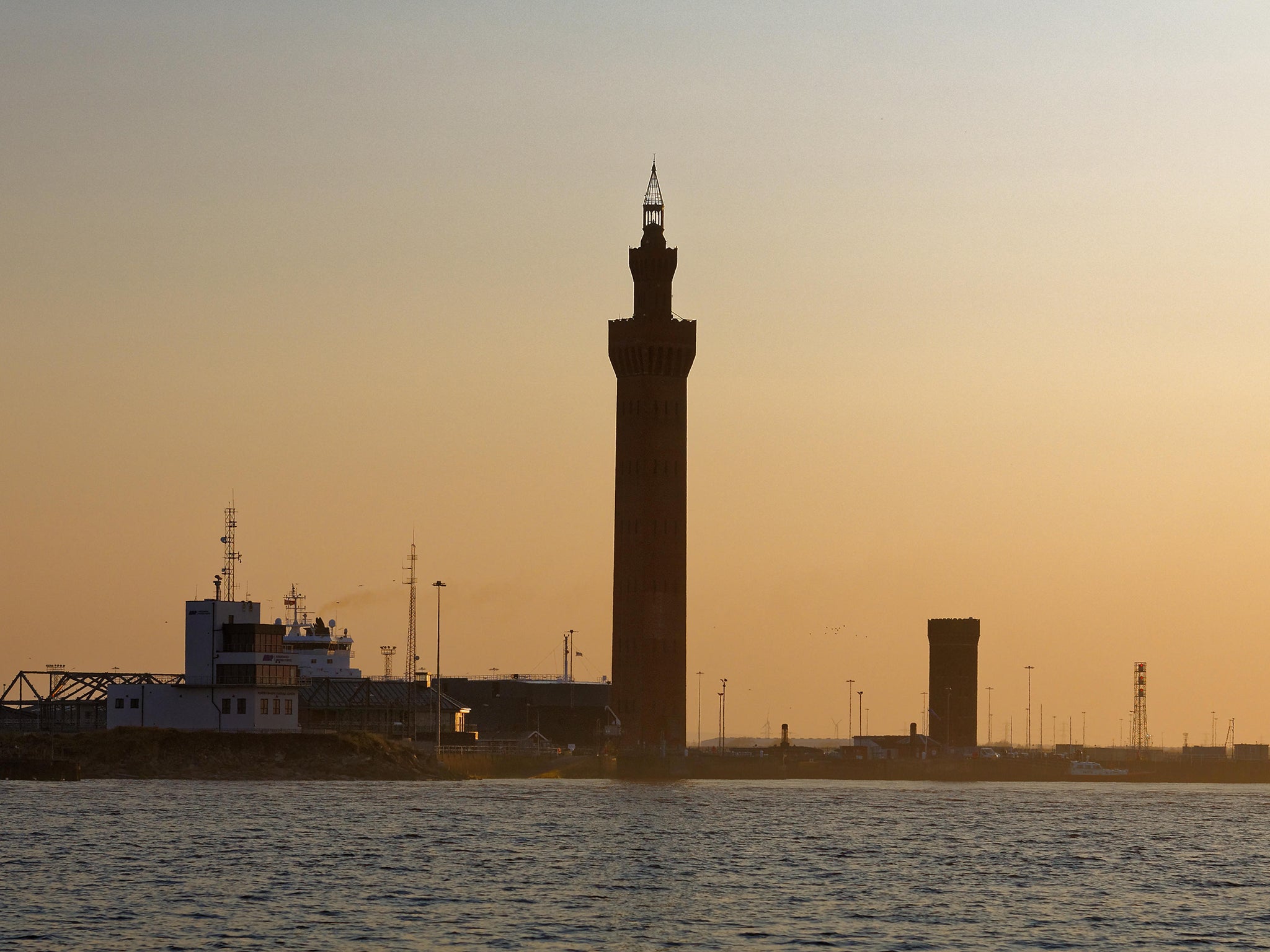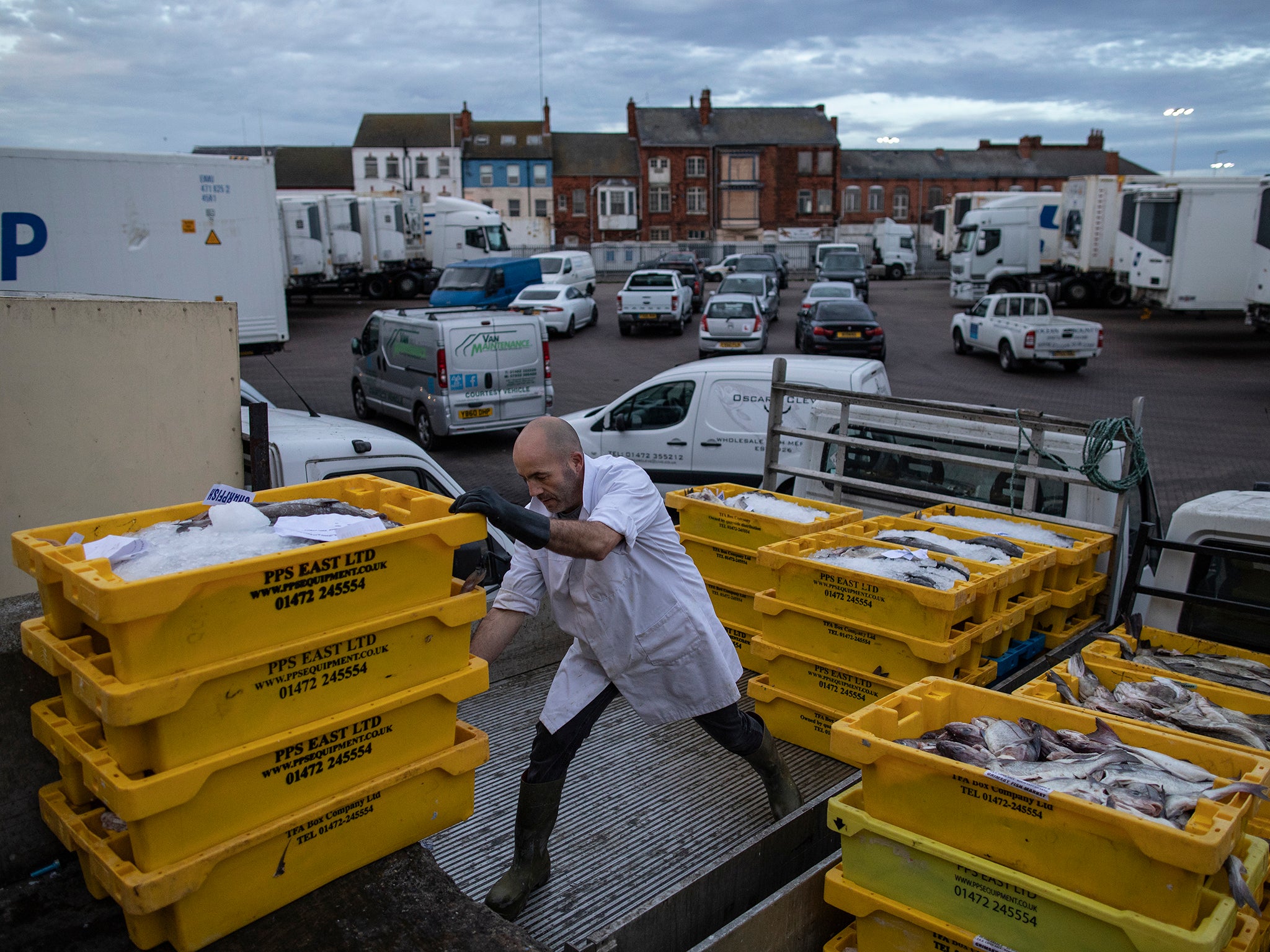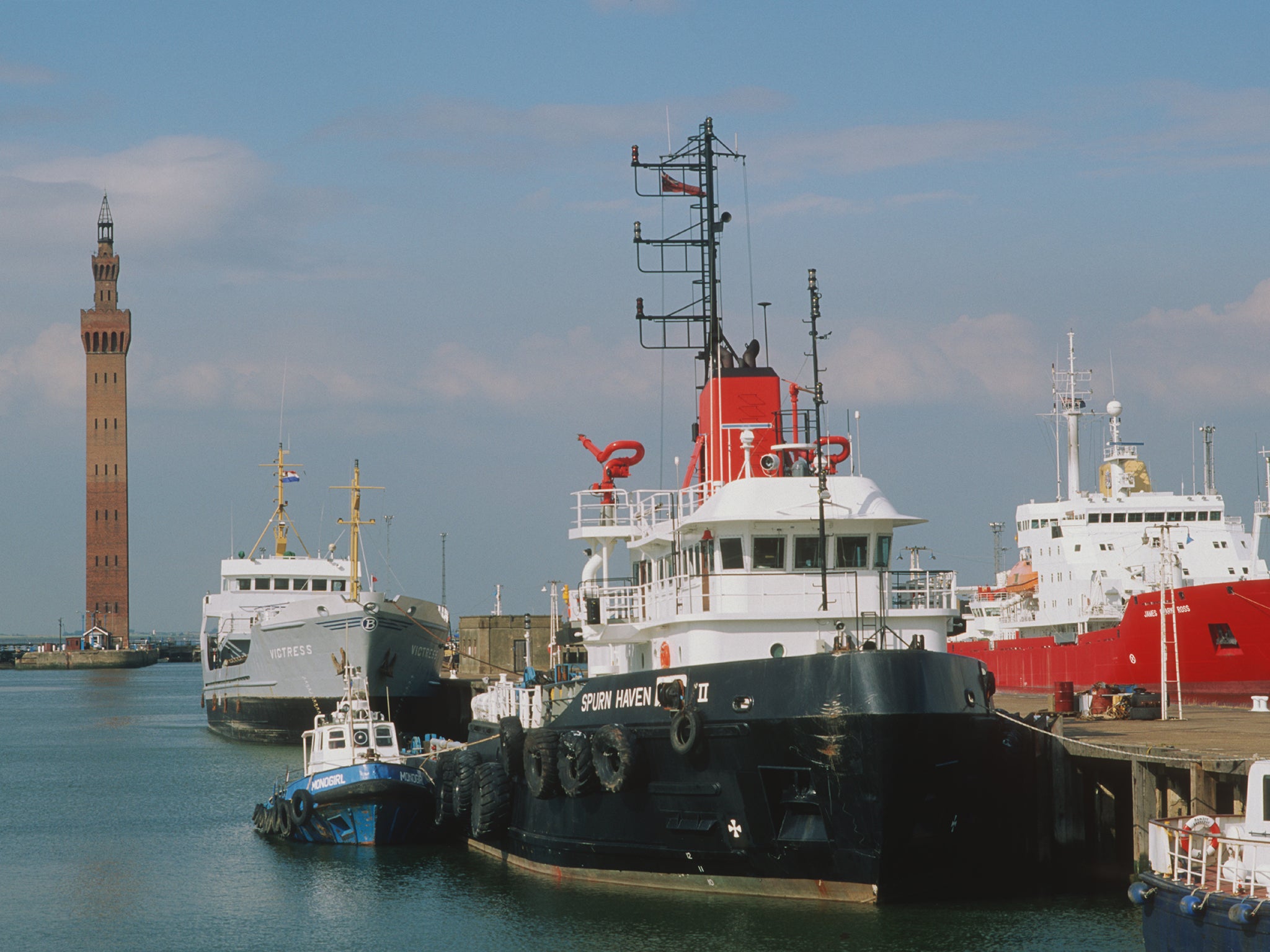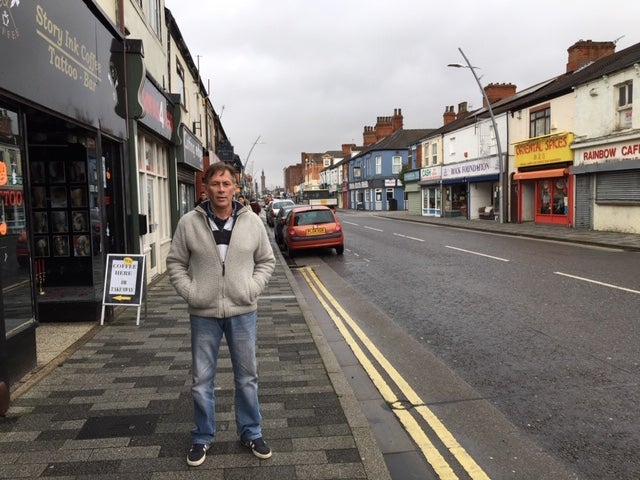Fear and fishing in Grimsby: How east coast town could hold key to general election success
One town was named this week as the symbol of the Tories’ must-win seats, but there are many other key battlegrounds across the north. Colin Drury begins a tour in Grimsby, where the local MP’s Labour allegiance and her Brexit intentions pull in different directions


In the Fifties heyday of Grimsby’s fishing industry, a train would run every hour from the town’s docks direct to London – carrying nothing but fresh catch.
“It would literally come off the boats, go through the market and get loaded straight onto a waiting train,” says David Ornsby, acting operations manager at Grimsby Fishing Heritage Centre. “They called it the world’s premier fishing port.”
The dock was so full of trawlers, old timers will tell you, that you could walk from one end to the other simply by skipping along the tied-up vessels. Children fought to help sailors. Trawlermen were well paid and famously generous. An old superstition that a man should never leave shore with money in his pockets meant they would hand over fistfuls of coins to youngsters who gathered to carry their bags.
Today, Grimsby remains synonymous with fishing. Some 20,000 tons of catch still passes through its market each year.
But the immense trade and prosperity of the past has long since disappeared.
The dock is now a ghost of its former self. Restrictions on fishing quotas – EU fishing quotas – mean only a handful of boats remain here. The town’s areas have declined in tandem: six of its eight council wards are in the UK’s worst 10 per cent for deprivation. There is no direct train to London anymore; nor trawlermen sharing pennies with children. There are hardly any trawlermen full-stop.
This is, in short, a town that has seen huge change over the last three or four generations – and, residents will tell you, not all of it for the better.
Now another monumental shift may be in the making.
The constituency of Great Grimsby has been a Labour stronghold since 1945. But if one new forecast is proven right, it could be about to elect a Tory MP for the first time since before the Second World War.
Electoral Calculus – a political consultancy which specialises in quantitative analysis – has predicted that local councillor Lea Nici is set to win the seat off Melanie Onn who currently holds a slender 2,565 majority.
The reasons?
It’s speculative, of course, but in a town that voted 71 per cent in favour of leaving the EU, it seems voters in this traditional Labour heartland are willing to do the previously unthinkable if it means getting Brexit done: they are willing to go blue.
To some extent, indeed, they already have done. In May’s council elections, the local North East Lincolnshire Council was won by the Tories. It was the first time the party had taken the authority since its creation in 1996.
“I’ve voted Labour all my life,” Matt Walsh tells me in the town’s famous Wellington Arms pub. “But this time, it’s the Tories. I want my 2016 vote listening to.”
All of which makes Grimsby simultaneously both unique and strikingly similar to a large swath of northern constituencies: Labour heartlands full of Leavers. Whoever wins such seats should probably be confident of electoral success.

I’m in the Lincolnshire east coast town – population 90,000 – on the day that Nigel Farage announced the Brexit Party will almost certainly field candidates to fight every seat in the UK.
When his picture comes on the news in Pepys Bar that evening, it is met with a small ripple of appreciation. Few people I speak to here want a People’s Vote. They’ve already had one, they say. Now, they want it acted on. If the Brexit Party does decide to field a candidate here, it seems certain they will win votes too.
“Three years on, we’re still being ignored,” says Walsh, back in the Welly.
How does that make him feel? “Powerless, angry.” He takes his shot at pool. “Our voice doesn’t matter because we’re not rich or educated or we don’t live in London.”
He likes Boris Johnson, he says. “You could have a pint with him, couldn’t you?” reckons the 49-year-old waste worker. “Even if he’s a bit of a Tory w****r.”
In this atmosphere, MP Melanie Onn finds herself in an unenviable position.
The 40-year-old, who only entered parliament in 2015, campaigned for Remain during the EU referendum but, last month, was one of only 19 Labour MPs to support the prime minister’s Brexit deal. She did so saying she felt it imperative to represent the voice of her constituents. “They gave a very firm and loud opinion,” she said.
For her troubles, she received a torrent of abuse from disgruntled Remainers. “Vile treacherous b*****d,” one said in an email. “Maybe they have dirt on you from some horrid sexual or other kind of secret,” another opined. Apparently, there were worse.
Yet, it is not clear her actions won her many friends among Grimsby’s Brexiteers either. For them, whatever her personal stance, they don’t trust the Labour Party to deliver an EU exit anyway.
When I contact Onn to discuss this contradiction, her office manager Katie Burgess tells me she does not have time.
“I think she has that approach to her [constituents] too,” one voter remarks when I mention this.

Lia Nici does make time at least.
The Conservative councillor is at the aforementioned Fishing Heritage Museum (it’s ace – honest) where we meet for a fishfinger butty. She’s midway through creating an exhibition there about Freddie Frinton. Who’s he? Only one of Grimsby’s most famous sons: a movie star who made a film, Dinner For One, that was so popular in Germany, they still show it there every Christmas.
“It’s like their Morecambe and Wise,” says Nici. “He’s more famous in Germany than Winston Churchill,” she adds, a little improbably.
What about David Hasselhoff? “Hmm, probably not that famous.”
Nici, like Frinton, is a Grimbarian (as indeed, is Ms Onn). Could she really cause a political earthquake here in her hometown?
“I think we have the best chance in a generation,” the 50-year-old media producer replies. “Historically, you would look at this seat and say it’s difficult but the things I’m hearing on the doorstep – people don’t like Jeremy Corbyn, they do like Boris, and, of course, there’s Brexit. They trust us to finish it.”
She herself – the daughter of an Italian immigrant father – voted to remain. “It was the first time I’ve ever had to make my mind up in the ballot booth,” she says. “But the country voted to leave, and I think they got it right. It was about wanting independence and sovereignty. If you believe in democracy, that now has to be delivered.”
In Grimsby, it may well have been about those fishing quotas too.
EU-imposed restrictions on the amount that could be caught is widely blamed here for the demise of the industry. “Let’s get out and then maybe we can get fishing again,” is how Margaret Jones puts it in the Freshney Place shopping centre.
The fact that the town is now a major import route for German cars or that the EU partially funded its new 2012 fish market cuts little ice. “If there’s an economic downturn, what does it matter?” says Jones. “This town’s been having one for 40 years.”
Not, it should be said, that Grimsby is the bleak town of popular caricature – and southern-based journalists.

Despite its downturn, it has much going for it still. The people here are friendly and full of conversation; the docks remain dotted with genuinely stunning landmarks like the 200ft dock tower and the empty-but-marked-for-regeneration Victoria Flour Mill; and the surrounding countryside of the Lincolnshire Wolds is a national treasure. Cleethorpes, the seaside town next door, has almost 5 miles of golden beaches that thrum with life in summer.
Yet, undeniably, residents have their concerns which will play out at this general election. Unemployment here stands at 7 per cent, educational attainment is lower than it should be and the town’s Diana Princess of Wales Hospital is precariously placed in financial special measures. Alcohol addiction, drug abuse and teenage parenthood are all higher than the national average, while police are having to deal with a pronounced county lines problem. Proposals from North East Lincolnshire Council that it may abandon a council tax rebate for the poorest households have also drawn some ire.
“It’s a lovely town,” says Ian Barfield, the Liberal Democrat candidate for the constituency. “But there are issues that need addressing. I don’t think we’re unique in that but perhaps our geographic location means we get overlooked. Investment from Westminster simply never materialises. People are worried for their futures. They need a government that understands that, and helps them.”
The 55-year-old, himself, does not appear to hold great hope of being elected. “There’s a remote chance,” is his unexpectedly frank assessment.
As the only candidate who explicitly supports remaining in the EU, he says he detects a sense that such a stance is gaining traction among others here.
Really, I ask? Because that’s not my feeling from speaking to people. He thinks for a moment. “It’s still a very Brexit town,” he acknowledges.
Graham Thompson, who runs Graham Thompson Jewellery in the town market, agrees with this. “I personally voted to remain,” he says. “But I knew I’d be in a minority.”
Who will he vote for now? “I’m a small businessman,” he says. “Whichever party cuts my rates has a headstart with me.”

From the market, I head to the Wellington Arms where I meet the aforementioned Matt Walsh.
After we speak I drag him outside for a photo in Freeman Street – the once fashionable shopping thoroughfare that links the docks to the rest of town and is now largely inhabited by vaping stores and betting shops.
He points down the road to the dock tower, that 200ft column built to help power the port in the 1850s.
“Look at that,” he says. “All the wealth to build that – and now what’s here? I don’t know if things can be changed again. But, Brexit or whatever, people here don’t feel like anyone is even trying to help them.”
Join our commenting forum
Join thought-provoking conversations, follow other Independent readers and see their replies
Comments
Bookmark popover
Removed from bookmarks